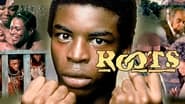mozartwwr
There are so many that take this mini series as an empirical truth, in the end Mr. Haley committed the worst sin of an author.
gilligan1965
Soon after this mini-series first came out on television, I remember that the biggest 'shock' that was written about and publicized wasn't about the cruelty and unfairness of slavery; or, the praising of its all-star cast and production; or, even Alex Haley's achievements as a writer!?!? It was about the actor, Ralph Waite (Daddy Walton on "The Waltons") - the once family-friendly patriarch of a nice family now using racially-degrading terms!?!? WHAT!?!? That's what people found most important about this mini-series...a talented 'white' actor being criticized for portraying a white-slave-trader 'character,' written about by a talented 'black' writer!?!? What was he supposed to do...pass-up the role? If he had, someone else would have done it!Since then, I've read a lot of reviews, on and off of IMDb, about how this isn't really based upon Alex Haley's own 'roots;' how it's plagiarized from another writer; that it's altogether 'fake;' etc; etc. Who cares!?!? This series depicts human nature and how people were throughout an old period in American History...EVERY American's American HISTORY!It's a great read as a book, and, a great achievement as a mini-series! Whether or not these events happened in-full or in-part as they are depicted, they had to have happened somewhere at some time. Maybe in Africa, Asia, and/or South America during their European colonization; maybe in Asia when Japan raped Nanking, China, and, other nations before and during World War II; maybe in Africa, or, anywhere else in the world (Europe; Native America; etc.), when one tribe of people enslaved another; etc.If any or all of this is the case...then, "Roots" isn't only an 'American' story...it's a worldwide "HUMAN" story. A story of mankind's darker side in general - about what happens when 'any' powerful people invade and enslave 'any other' weaker people, anywhere in the world, past and present.If that's the case, then, 'this' is the 'real' "GREATEST STORY EVER TOLD"...only told in an old American setting.
ShelbyTMItchell
As we are still striving to make sense and harmony of racial relations. As this miniseries from the 1977 TV season that drew over 100M people and how it introduced the world to how racism really began about.It shows the struggle to be free and how it looks at the descendants of the late Alex Haley, author the book thinking that the word "free" would never, ever come.By showing the struggles that these people have. From Kunta Kinte the main protagonist to his line of family linage like Kizzy, Chicken George, etc.A great cast led by a then unknown Levar Burton and great writing. Shows us that this miniseries needs to be seen not just in the past, but present and future generations to come.No matter what race, color, creed, gender, religion, etc we belong in. For it is the fight to accept others like in the past that has since occurred in the present and in the future to come.Haley should take a bow for opening up 100M to the fight to remain free and accept others!
classicalsteve
Two of the most important American television programs are "The Civil War" by Ken Burns (1989), and the epic narrative miniseries "Roots" (1977) based on the book "Roots: The Saga of an American Family" by Alex Haley. Despite the controversy surrounding the book, and the facts of Haley's ancestry (for example, the slave Toby aka "Kunte Kinte", may never have fathered Kizzy and therefore may not be a direct ancestor of Haley) the series is an important and ground-breaking work in its stunning portrayal of slave life in America from the late 18th century to the mid-19th century.For decades, the United States has been largely in denial of its treatment of African-Americans both as slaves and later in post-Civil War periods. The south of the 19th century had fabricated the reality of slave conditions and down-played the brutality inflicted on both slaves and anti-slave sympathizers. Racial hatred and brutality continued into the 20th century, largely fueled by white traditions that have (and continue to) concoct misrepresentations of historical reality to younger generations. By the middle of the 20th century, nearly 100 years after the end of the American Civil War, President Johnson signed Civil Rights legislation into law with the White Southern community kicking and screaming all the way. If legislation couldn't change people's hearts and minds, what could? Americans love movies, story-telling/narrative film depictions of reality. There had never before been a nationally distributed film production that honestly told the story of the African-American slave experience. Fourteen years after Johnson's legislation, "Roots" was broadcast on national television by the American Broadcasting Company (ABC). I regard those network executives that green-lighted the broadcast in great esteem for their willingness to take a chance on this most-important series. I doubt whether US commercial television will ever produce and broadcast such a high-caliber and controversial program again in the near future. And to give credit to the American viewing public, "Roots" was a huge success.From beginning to end, "Roots" is an absolute triumph of film production, the best-ever miniseries offered by a corporate network prior to the rise of cable television. The acting and the script are top-notch. Almost every notable African-American acting talent of the time was solicited to join the cast, from LeVar Burton and John Amos (Kunte Kinte, Toby) to Lou Gosset Jr (Fiddler) to Ben Vareen (Chicken George) to James Earl Jones (Alex Haley). Even OJ Simpson makes an appearance. A lot of notable white talent appears as well, such as Ed Asner and Sandy Duncan.Slavery is a tragedy and "Roots" is a tragic story. "Roots" has its light moments, its inspiring moments, although it is its heartbreaking moments that stay with you: The moment the young African Kunte Kinte is shackled, sold as chattel and forced to board the slave ship bound for America. The whipping of the young Kunte Kinte to "break" him into slavery. The selling of Kizzy, Toby's daughter, to another slave master because of her involvement with a scheme to help a runaway. These are the moments that make Roots' larger point. Another aspect that makes Roots effective in its rhetoric is that it never seeps into sentimentality to makes its point. The story relies on an honest narrative and the audience is left to draw their on conclusions. Is it brutal? Yes. Unjust? Definitely. And that is what it was. (If you don't believe "Roots", sell yourself into slavery and see how you like it.)Two aspects occur to me about what this story means beyond just the plain inhumanity of the institution of slavery. One aspect is that the benefit of slavery is terribly minute when compared to the staggering price paid by the slaves themselves and everyone else. Simultaneously, non-slaves were pressed into service to maintain slavery as an institution. Such titanic sadness, misery, hopelessness brutality, and inhumanity is forced upon people (both slave and non-slave) in return for a more comfortable life for a minuscule segment of the population. And yet the amount of work, effort, and money to maintain the inhumane infrastructure seems more burdensome than if these people were free. The average white southerner could not afford to own slaves, and many worked for slave owners as overseers, slave-catchers, auctioneers, and other positions designed to maintain the institution. In short, misery for thousands with a little comfort for a few. The other tragedy is the denial of positive contribution to society. Those who were slaves were denied giving their love, their knowledge, their inspiration, and their culture to society. All this beauty sacrificed so a few white aristocrats can laze around on sofas in front of fireplaces in giant mansions. Someone once said that if we don't help foster the gifts in other people, we run the risk of never seeing how our world could be made better. Slavery is a tragedy for the people enacting it as well, although the suffering aspect is less apparent."Roots" is a story that needs to be told and retold. Shown and re-shown. I would encourage any teacher trying to convey the reality of slavery in America to consider showing at least a segment or two of "Roots". There is no question that the film is mesmerizing. It saddens me that there are still those in America that want to hang onto southern myths that propagate that slavery wasn't that bad. These are some of the same people that are convinced the holocaust is a fabrication. It is better to forgive than the forget. We have to embrace our roots.





